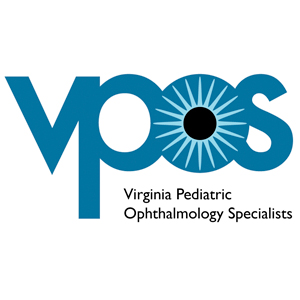Did you know that more than half a million people each year suffer from home or yard work-related eye injuries? To some people, gardening is fun and to others just a necessary chore. But either way, it’s important to remember that some of the most common lawn and garden care products and equipment can cause eye injury. Don’t become a statistic.
We tend to think that because chemicals and tools are made to be used at home, they’re safe. But sometimes they’re not.Common chemicals we use for cleaning or yard work can be very dangerous and accidents involving these things can result in eye pain at one end of the scale, and permanent blindness in the worst case scenario.
Data indicates that there are up to 32,000 serious eye injuries caused each year by household products. Chemical injuries can happen when fluids are sprayed, splashed, or misted into the eyes. Some of the common products causing injury include fertilizers, weed killers, insect killers, drain cleaners, mosquito repellent (DEET), and cleaners such as ammonia, detergents, bleach, and other disinfectants.
Direct injury to the eyes can happen as well. Some of the more common causes include power nylon cord trimmers or edgers, stones or debris from power mowers, flying material from hedge trimming, and hammering or drilling into brick or cement, causing flying particles.
You should always have an updated first aid kit at the ready in case of eye injury. Besides the typical bandages and antibiotics, include cold compresses to ease swelling or pain. A small cup and adhesive tape will allow you to protect a damaged eye until you can get further care.
Chemicals splashed into the eyes cause burning, tearing, pain, redness and blurred vision. Check the label and follow any directions about eye exposure. Most of the time, immediately flushing the eye for 15 minutes with cool clear water will take care of the problem. But if the label directs you to proceed to the emergency room, go immediately! Severe damage to the eye from chemicals is rare with proper immediate care, but it’s important to remember permanent eye damage and loss of vision can be a devastating consequence.
If you get a cut or puncture wound in your eye, don’t wash it out. Cover it by taping a small cup to your cheek and forehead, protecting the eye. Go to the emergency department immediately. If there is a foreign object in the eye, don’t try to remove it yourself. Your emergency room team will contact an ophthalmologist to make sure you get the best possible treatment.
The American Academy of Ophthalmology has reported that 90 percent of eye injuries are preventable with proper precautions. In the case of injuries that occur in the yard, there’s a simple solution: Goggles or safety glasses will protect your eyes from splashes, sprays, and flying objects. Goggles fit snugly on the face and are designed to keep anything from getting beneath. Protective glasses can sometimes allow materials to get into the eyes around the edges of the glasses, but are relatively effective in most cases.
Deciding what kind of eye protection to use can be confusing, since there are many possible features and a range of prices.If nothing else is available, UV-blocking wraparound sunglasses with shatterproof lenses will offer some protection.
Lenses are available with many different features, including anti-fog, tinting, and Uv-protection. You can also have safety glasses fitted with prescription lenses. Most protective glasses are made of tough polycarbonate plastic and are strong enough to prevent most house- and gardenrelated injuries caused by flying debris and chemical accidents.
Ballistic rated lenses are used by military, rescue, and law enforcement personnel but are available to anyone who wants to buy them. Commercial lenses are rated according to the ANSI Z87.1-2010 system, and are rated as either impact (Z87+) or non-impact (Z87). Depending upon the rating and design, they may be used by personnel in construction, health care, and the military, among other circumstances.
Another protection alternative is the safety shield. This is a rigid, clear plastic sheet that covers your eyes and part or all of your face. Some styles will wrap around to protect the sides of your face and your ears, as well. These can be worn over prescription glasses, but many professionals recommend that shields be used in combination with safety glasses or goggles. Shields will stop small pieces of debris and protect your eyes from sprays or spills, but may not be strong enough to protect against larger flying objects.




